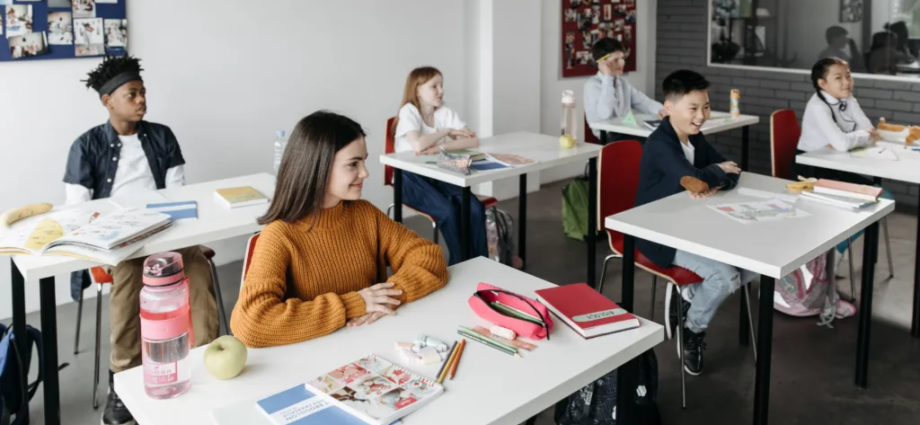
Australia is keen to engage with its nearest neighbours in Southeast Asia, but is backsliding on learning the region’s languages.
By Sharyn Davies, Monash University
March 6, 2024
Australia is eager to deepen its ties with Southeast Asia – but it’s backsliding on learning the region’s languages.
Prime Minister Anthony Albanese has recognised the value of Australians learning Bahasa Indonesia, a key language from the Southeast Asian bloc. As he put it in 2022: “more Australians speaking Bahasa Indonesia will be vital to deepening our relationship.”
However, at last count, in 2020, just 1 percent of Australia’s domestic university students were studying an Asian language. That’s a decline from 1.75 per cent in 2005.
Only 828 of those were studying Bahasa Indonesia.
Albanese is this month hosting leaders from the Association of Southeast Asian Nations (ASEAN) for a “Special Summit”. The summit aims to strengthen partnerships with the Southeast Asian region — which is projected to become the world’s fourth-largest economy by 2040, presenting major economic opportunities for Australian business.
The geo-political importance of Asia is more important than ever. More than one-fifth of global trade transits through the South China Sea, making the area a vital trade route.
The summit will focus on emerging leaders and business as priority areas.
But despite education being crucial to Australia’s ties with Southeast Asia since the 1950s, with Australian institutions and governments vowing for decades to increase “Asia literacy”, it seems Australia’s students are not adequately prepared to speak Southeast Asian languages.
And getting more to learn Bahasa Indonesia is a big ask.
The state of learning languages in Australia overall is poor.
Only 8 per cent of Australian students said they are learning two or more foreign languages in 2018 – a shockingly low figure compared to 50 per cent of students across OECD countries.
But even when students do study a language in their final years of school, Southeast Asian languages barely get a look-in.
Japanese, French, German and Mandarin have been among the most common languages taught in schools nationwide over the last few years. One study from 2017 found that Greek, Italian and French all ranked higher than Vietnamese, which took eighth place. Indonesian was the fifth most-taught language that year.
The trend away from Indonesian and other Southeast Asian languages undermines Australia’s Asia literacy at the very time when Australia seeks to emphasise its relationship with the region.
It’s also a step back since the Keating years. In 1995, then-Prime Minister Paul Keating launched the National Asian Languages and Studies in Australian Schools (NALSAS) strategy to actively promote the learning of Asian languages, including those from Southeast Asia.
The scheme ran until 2002 – a period in which time Victorian Certificate of Education (VCE) enrolments in Indonesian more than doubled. But NALSAS has had a tumultuous history since. It was discontinued by the Howard government in 2002; partly revived by the Rudd government in 2009; then discontinued by the Gillard government in 2012.
Learning the languages of this neighbouring region is key to building meaningful partnerships with this bloc. Indonesia, for example, is an emerging global powerhouse with a population of almost 274 million. More than 1 million Australians visit Indonesia each year.
Diplomacy is vital to securing defence and trade relations.
Australia would never expect a delegation from Southeast Asia to have no one speaking English, yet Australia seems to assume that our partners won’t mind if we don’t speak their language.
As a sign of goodwill, we need at least some trade and defence delegations speaking local languages.
An understanding of Southeast Asia is also, simply, part of being a good neighbour. To really understand a country and its culture you need to know its language. Could anyone understand Australia without understanding “bonza”, “you little ripper”, “she’ll be right”?
As Australia’s largest neighbour, our relationship with Indonesia and other Southeast Asian countries is of vital importance.
The Federal government acknowledges its trade and investment with the region has not kept pace with the growth of Southeast Asian economies. It is now time to walk the talk.
Sharyn Davies is an Associate Professor in Indonesian Studies at Monash University and is recognised internationally as an expert in the field of Indonesian Studies and for her contributions to the study of gender, sexuality, policing, social media, and moral surveillance. A/Prof Davies is also Director of the Herb Feith Indonesia Engagement Centre. She received her PhD from the University of Western Australia (Anthropology and Asian Studies) and prior to her appointment at Monash was at Auckland University of Technology (AUT) in New Zealand. Sharyn has held visiting fellowships at Cambridge, Yale, Sydney, Peking and Airlangga universities, and has been awarded Fulbright, Leverhulme and Marsden funding.
Subscribe to our newsletter.
Originally published under Creative Commons by 360info™.

